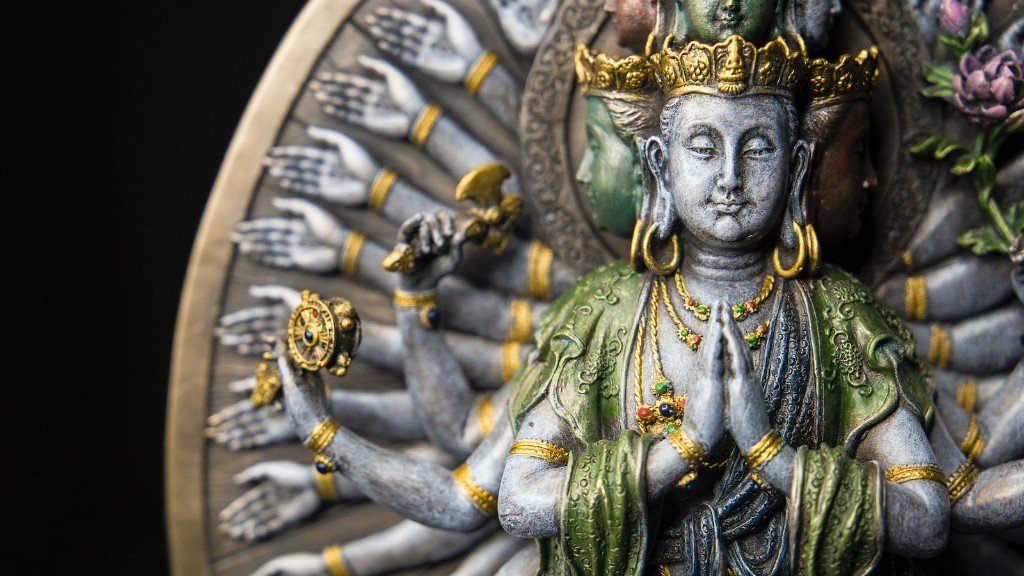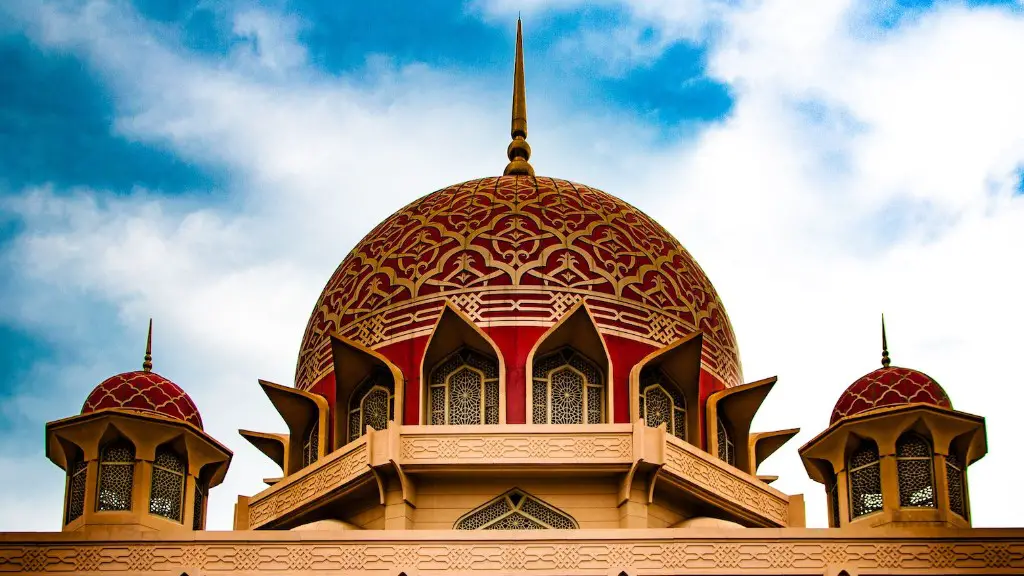The history of Christianity in India dates back to the first century AD, with a steady spread for the next two centuries. While it is impossible to know how many Christians existed in India during the period, most estimates suggest it was a small, but growing minority. Furthermore, Christianity was successful in establishing itself as an important religion in India, becoming a focal point for artistic, literary, and theological expression.
The initial spread of Christianity in India was due to the St Thomas Christianity, or “Nasrani” from the Syriac word meaning “follower of Jesus of Nazareth”, which had been brought to India by St. Thomas, one of the apostles of Jesus Christ. His journey may have been as early as A.D. 45. He was said to have reached Muziris, which is the modern city of Pattanam in the south-west coast of the Indian Peninsula.
During the early period of Christianity in India there were five independent missionary activities. The first was when the evangelists were invited by the Indian Kings, who granted permission for the building of churches and other activities. The second missionary activity was initiated by the great Christian preachers such as Ephrem the Syrian, Basilius and Gregory Nazianzen who taught Christianity in Syria. The third missionary activity was led by Roman Catholic missionaries from Portugal, who arrived in India in A.D. 1498. The fourth was the Protestant missionary activities in India during the 19th century, initiated by the Baptists in England, Scotland, and Holland. The fifth missionary activity was the rise of the new Indian Pentecostal churches.
In the present-day, Christianity has a strong presence in India across a variety of denominations. According to the empirical estimates, India is home to more than 25 million Jesus-followers. This amounts to approximately 2.3 percent of the population, making Christianity the third-largest religion of the country, after Hinduism and Islam. Moreover, it is worth noting that the Christian population in India is growing steadily as the result of the evangelistic activities of both the Protestant and Catholic churches.
Due to the specific socio-cultural characteristics of particular Indian subpopulations, Christianity in India takes varied forms. For instance, St Thomas Christianity is considered to be a distinct Indian Christian rite and represents an ancient faith in the country, with ancient liturgies and saints. On the other hand, modern Pentecostal Christianity that emerged in the beginning of the 20th century is a much more activist denomination, with an emphasis on active conversion. Its adherents believe that there is still much work to do in spreading the Word of Jesus in India.
Nevertheless, Christianity has not had it easy in the last few centuries in India, where it has existed in competition with the country’s traditional religions such as Hinduism, Buddhism and Sikhism. On the political level, some of the Hindu nationalist leaders have been hostile to Christians and have accused Christian missionaries of “converting through coercion”. This has resulted in increased negative sentiments among community members towards Christians and a rise in reports of vandalizations and anti-Christian violence.
Suppression of Free Thought
Although Christianity has a long and diverse history in India, the most prominent narrative in recent times has been one of suppression and restrictions. This includes the oppressive regulation of, and restrictions on, the acts of conversion, the demolishing of churches and destruction of crosses, the refusal to recognize Christian marriages, the targeting of Christian educational institutions, and the use of anti-conversion laws to intimidate Christians.
With the coming to power of the Hindu nationalist Bharatiya Janata Party (BJP), violations against Christians have increased in both intensity and frequency. Churches have come under attack, and funeral processions and prayers have been disrupted by Hindu nationalists. Furthermore, in some areas, the official textbooks adopted by the government contain anti-conversion and anti-minority material, which some argue has had a normalizing effect on hatred and violence against minorities.
The situation for Christians in India is not only one of suppression and intolerance, but extends to a lack of recognition and legal protection. Although the Indian Constitution recognizes religious diversity and guarantees the right to freely practice any faith and propagate it, Christians often find themselves facing situations of discrimination and persecution where they struggle to find legal redress.
Legislation Against Discrimination
Discrimination against Christians in India is primarily fueled by the lack of protection against persecution. The absence of strong anti-discrimination laws has enabled Hindu nationalist groups to continue to target Christians with impunity. Activists and religious leaders have thus called for legislation that would defend the rights of Christian individuals and religious minorities in the country.
In recent years, some significant steps have been taken towards the protection of Christians in India. For example, the Indian Supreme Court has recognized Christianity as a distinct faith, thereby granting it protection under the scope of the court’s laws and judgments. In addition, the Indian government has set up a National Commission for Minorities to aid minority religious communities, including Christians, in obtaining justice and protecting their rights.
Furthermore, civil society organizations, often in partnership with the government, are working to create awareness of the situation of the Christian minority in India and to encourage the development of a more vibrant legal framework to protect religious freedom. Among other initiatives, activists are advocating for the Comprehensive Anti-Discrimination Act (CADA) which is intended to protect individuals and groups from discrimination based on religious and other identities. This legislation is hoped to be a significant step towards the protection of Christians in India.
Conclusion of the Church
Christianity in India is a living, evolving faith that has been in existence for centuries. Although the participation of Christians in Indian society has often been overshadowed by persecution and discrimination, the religion is still alive, and recent developments are slowly leading to greater protection of religious minorities in the country. This is enabling the Church in India to play a stronger role in offering spiritual guidance, social services, and advocacy for disadvantaged communities.
Role of the Global Church
The global church has an important role to play in figuring out how to address religious discrimination and persecution in India. The Catholic Church, in particular, has had a long history of involvement in India, and has a deep understanding of the situation of the Christian minority in the country.
As a result, faith-based organizations are attempting to build coalitions and support networks among Christian communities in India, in order to raise awareness of the ongoing religious discrimination and foster advocacy for change. Through its own initiatives, as well as by connecting with other like-minded organizations (such as NGOs and social movements), the global church is aiming to protect and promote religious freedom for Christians in India.
Impact of International Pressure
International pressure has often been used to hold the Indian government responsible for its failure to protect religious minorities, and to encourage it to take stronger measures against religious discrimination and persecution in India. Human rights organizations and world leaders have been vocal in their criticism of the government’s response to the situation of the Christian minority in India, which has in some cases served to bring increased attention to the issue.
In response, the Indian government has taken some measures to address the situation of religious minorities, such as the creation of the National Commission for Minorities. However, there is still much progress to be made in fighting discrimination and persecution of Christians in India, and public pressure and activism are needed in order to ensure that governments and authorities work towards providing effective legal protection to all Indian citizens regardless of their faith or other identity.
Role of International NGOs
International NGOs have long played an important role in the struggle for religious freedom in India, by providing necessary support to churches, Christian institutions, and religious minorities. Additionally, NGOs are taking action to monitor and document instances of religious discrimination and violations of religious freedom, in order to build stronger cases for justice and accountability.
Moreover, international NGOs have intervened on behalf of religious minorities, such as Christians, in order to protect them against discrimination and potential violence. Through advocacy and letter-writing campaigns, international NGOs are seeking to pressure the Indian government and authorities to bring justice and protection to Christians, as well as to all other religious minorities in the country.
Conclusion of the Government
In conclusion, the persecution of Christians in India is a complex, multifaceted issue that must be urgently addressed. From exploring the history and traditions of St Thomas Christianity to understanding the current challenges and implementing legal protection, it is clear that many stakeholders have an important role to play in ensuring the religious freedom of Christians in India. From the international pressure by human rights organizations to the work of churches, international NGOs, and the Indian government, it is essential that the Christian minority in India be adequately protected and not be subject to discrimination, persecution, and other forms of oppression.

